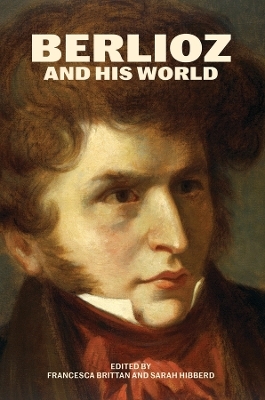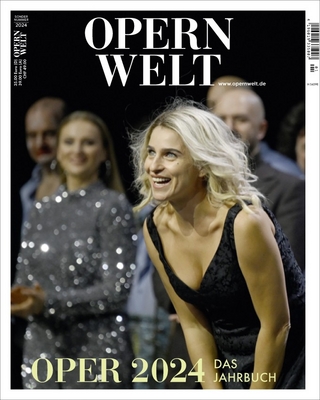
Berlioz and His World
University of Chicago Press (Verlag)
978-0-226-83766-6 (ISBN)
Hector Berlioz (1803–1869) has long been a difficult figure to place and interpret. Famously, in Richard Wagner’s estimation, he hovered as a “transient, marvelous exception,” a composer woefully and willfully isolated. In the assessment of German composer Ferdinand Hiller, he was a fleeting comet who “does not belong in our musical solar system,” the likes of whom would never be seen again. For his contemporaries, as for later critics, Berlioz was simply too strange—and too noisy, too loud, too German, too literary, too cavalier with genre and form, and too difficult to analyze. He was, in many ways, a composer without a world.
Berlioz and His World takes a deep dive into the composer’s complex legacy, tracing lines between his musical and literary output and the scientific, sociological, technological, and political influences that shaped him. Comprising nine essays covering key facets of Berlioz’s contribution and six short “object lessons” meant as conversation starters, the book reveals Berlioz as a richly intersectional figure. His very difficulty, his tendency to straddle the worlds of composer, conductor, and critic, is revealed as a strength, inviting new lines of cross-disciplinary inquiry and a fresh look at his European and American reception.
Francesca Brittan is associate professor of music at Case Western Reserve University. She is the author of Music and Fantasy in the Age of Berlioz and coeditor of The Attentive Ear: Sound, Cognition, and Subjectivity, 1800–1930. She serves as coeditor of the Journal of Musicology and general editor of the series Recent Researches in Nineteenth- and Twentieth-Century Music for A-R Editions. Sarah Hibberd is the Stanley Hugh Badock Chair of Music at the University of Bristol. She is the author of French Grand Opera and the Historical Imagination and coeditor of Music and the Sonorous Sublime in European Culture, 1680–1880. She serves as coeditor of the Cambridge Opera Journal and is on the editorial board of Music & Letters.
Permissions and Credits
Acknowledgments
Introduction: Berlioz and the Pantheon / Francesca Brittan and Sarah Hibberd
ESSAYS I
The Language of Prophecy in Les Troyens / Sarah Hibberd
“Ossianic Sounds”: Berlioz on Memory / Carmel Raz
Berlioz contra Rousseau: Nature, Culture, and la musique descriptive / Alexandra Kieffer
OBJECT LESSONS I
Berlioz’s Virgil / Ellen Lockhart
Inevitable Antagonists: Berlioz and Donizetti / Roger Parker
Hearing the Hostias, Rehearing the Requiem / Jennifer Walker
ESSAYS II
Orchestral Futurisms: Berlioz and Science Fiction / Francesca Brittan
Passing the Baton: Conducting Masculinity in La damnation de Faust / Inge van Rij
On Berlioz’s Subterranean Operations: Toward a Nineteenth-Century Media Logic / Shaena B. Weitz
OBJECT LESSONS II
Euphonian Sound and Fury, Signifying Something / Benjamin Walton
Berlioz: Conductor and One-Man Band / Jacek Blaszkiewicz
“Je crois en vous” / Nathan Dougherty
ESSAYS III
American Episodes in the Life of the Artist / Jonathan Kregor
A Comet in the Musical Sky: Ferdinand Hiller on Hector Berlioz / Ralph P. Locke and Jürgen Thym
Intimate Beauty and Sublime Grandeur: Sound and Space in the Music of Berlioz / Leon Botstein
Index
Notes on the Contributors
| Erscheinungsdatum | 22.08.2024 |
|---|---|
| Reihe/Serie | The Bard Music Festival |
| Zusatzinfo | 9 halftones, 35 line drawings, 1 tables |
| Sprache | englisch |
| Maße | 156 x 235 mm |
| Gewicht | 540 g |
| Themenwelt | Kunst / Musik / Theater ► Musik ► Klassik / Oper / Musical |
| ISBN-10 | 0-226-83766-1 / 0226837661 |
| ISBN-13 | 978-0-226-83766-6 / 9780226837666 |
| Zustand | Neuware |
| Informationen gemäß Produktsicherheitsverordnung (GPSR) | |
| Haben Sie eine Frage zum Produkt? |
aus dem Bereich


